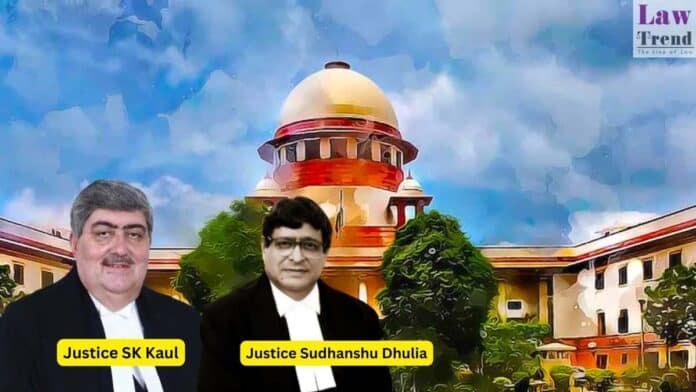The Supreme Court on Friday refused to entertain a petition filed in 2019 by a two-year-old seeking a CBI or an SIT investigation into complaints of “large-scale” and “well-organised” kidney transplant scam involving corporate hospitals in several states, saying courts cannot be “panacea” for all things wrong.
A bench of Justices S K Kaul and Sudhanshu Dhulia said the court cannot be like an all-encompassing system trying to do everything. It said these are administrative issues for the police and the executive mechanism to deal with.
In August 2019, the top court had sought responses from the Centre and others on the plea of a 23-month-old infant who had approached the court through his mother.

The child was suffering from West syndrome, a condition in which children have seizures and cognitive and developmental impairment. It had rendered him mentally disabled at the time of his birth at a private hospital.
During the hearing on Friday, advocate Sachin Jain, appearing for the petitioner, told the bench about five recent instances of alleged kidney racket in 2023 and referred to the January 2013 report of the Justice (retd) J S Verma committee, which had flagged the issue of children being driven into forced labour, sex abuse and made victims of illegal human organ trade.
“We are not inclined to entertain the petition any further but call upon the respondents (Centre and others) to look into the issue flagged by the petitioner and take necessary action, especially keeping in mind the recommendations of the Justice J S Verma committee report,” the bench said.
During the hearing, the bench asked, “Does the Supreme Court have some kind of a running mechanism for everything, every department, every system?”
Jain said such scams have inter-state and international connections, and a central agency should be entrusted with the task of probing them.
“These are administrative issues. There is a police mechanism. There is an executive mechanism to handle it. We can’t take over the burden of everything and start doing it here,” the bench said.
It said if in a particular incident things are not working, the court examines it and passes judicial orders.
“It (court) is not a panacea for all things which may be wrong in the country,” the bench observed.
Also Read
In August 2019, the apex court had sought responses from the Centre and others including the states of Haryana, Uttar Pradesh and Delhi on the plea which said the probe should be monitored by a committee comprising one or more former judges or senior advocates.
The petition had also sought a direction to the Centre and the three states to undertake a campaign to create awareness among the underprivileged sections about the menace of organ trade and to acquaint them with their rights and remedies.
The plea, which mentioned media reports about kidney trafficking, had claimed a large number of poor and vulnerable citizens were being frequently “coerced, forced and compelled” to sell their kidneys, and the Centre and the states have not taken any preventive measures to stop this fraud.
The petition alleged organ trafficking involved some medical practitioners, who were the “black sheep” of the medical industry, and were destructive to humanity, law and the entire medical fraternity.







